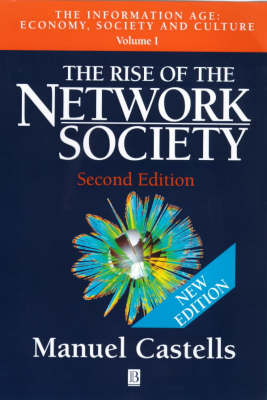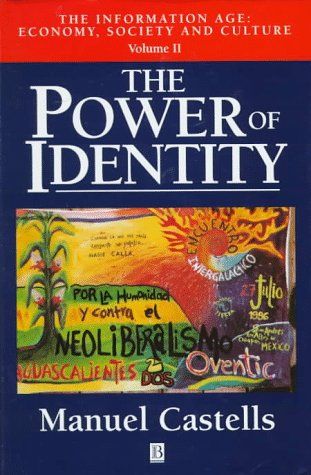

Rise Of The Network Society Economy, Society And Culture Upplaga 2
- Upplaga: 2a upplagan
- Utgiven: 2000
- ISBN: 9780631221401
- Sidor: 560 st
- Förlag: Blackwell Publishers
- Format: Häftad
- Språk: Engelska
Om boken
This book, the first in Castells' ground–breaking trilogy, is an account of the economic and social dynamics of the new age of information. Based on research in the USA, Asia, Latin America, and Europe, it aims to formulate a systematic theory of the information society which takes account of the fundamental effects of information technology on the contemporary world.
The global economy is now characterized by the almost instantaneous flow and exchange of information, capital, and cultural communication. These flows order and condition both consumption and production. The networks themselves reflect and create distinctive cultures. Both they and the traffic they carry are largely outside national regulation. Our dependence on the new modes of informational flow gives enormous power to those in a position to control them to control us. The main political arena is now the media, and the media are not politically answerable.
Manuel Castells describes the accelerating pace of innovation and social transformation. He examines the processes of globalization that threaten to make redundant whole countries and peoples excluded from informational networks. He investigates the culture, institutions, and organizations of the network enterprise and the concomitant transformation of work and employment. He shows that in the advanced economies production is now concentrated on an educated section of the population aged between 25 and 40. He suggests that the effect of this accelerating trend may not be mass unemployment but the extreme flexibilization of work and individualization of labor, and, in consequence, a highly segmented social structure.
This new edition of The Rise of the Network Society has been substantially modified and details the new social and economic developments brought by the Internet and the 'new economy'. The volume has been updated throughout to take account of changes since its original publication.
Åtkomstkoder och digitalt tilläggsmaterial garanteras inte med begagnade böcker
Mer om Rise Of The Network Society Economy, Society And Culture (2000)
I januari 2000 släpptes boken Rise Of The Network Society Economy, Society And Culture skriven av Manuel Castells. Det är den 2a upplagan av kursboken. Den är skriven på engelska och består av 560 sidor. Förlaget bakom boken är Blackwell Publishers.
Köp boken Rise Of The Network Society Economy, Society And Culture på Studentapan och spara pengar.
Referera till Rise Of The Network Society Economy, Society And Culture (Upplaga 2)
Harvard
Castells, M. (2000). Rise Of The Network Society Economy, Society And Culture. 2:a uppl. Blackwell Publishers.
Oxford
Castells, Manuel, Rise Of The Network Society Economy, Society And Culture, 2 uppl. (Blackwell Publishers, 2000).
APA
Castells, M. (2000). Rise Of The Network Society Economy, Society And Culture (2:a uppl.). Blackwell Publishers.
Vancouver
Castells M. Rise Of The Network Society Economy, Society And Culture. 2:a uppl. Blackwell Publishers; 2000.



















